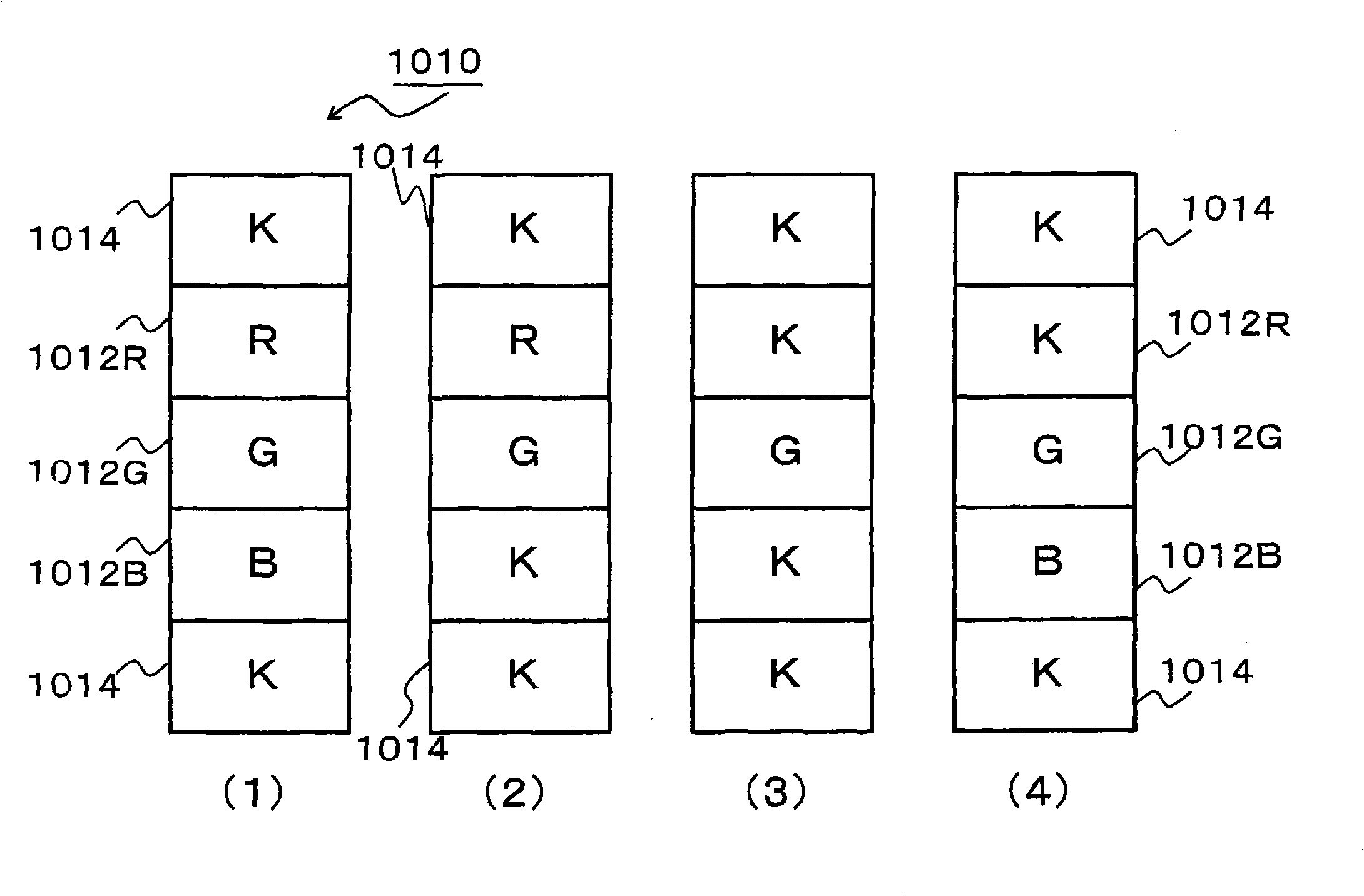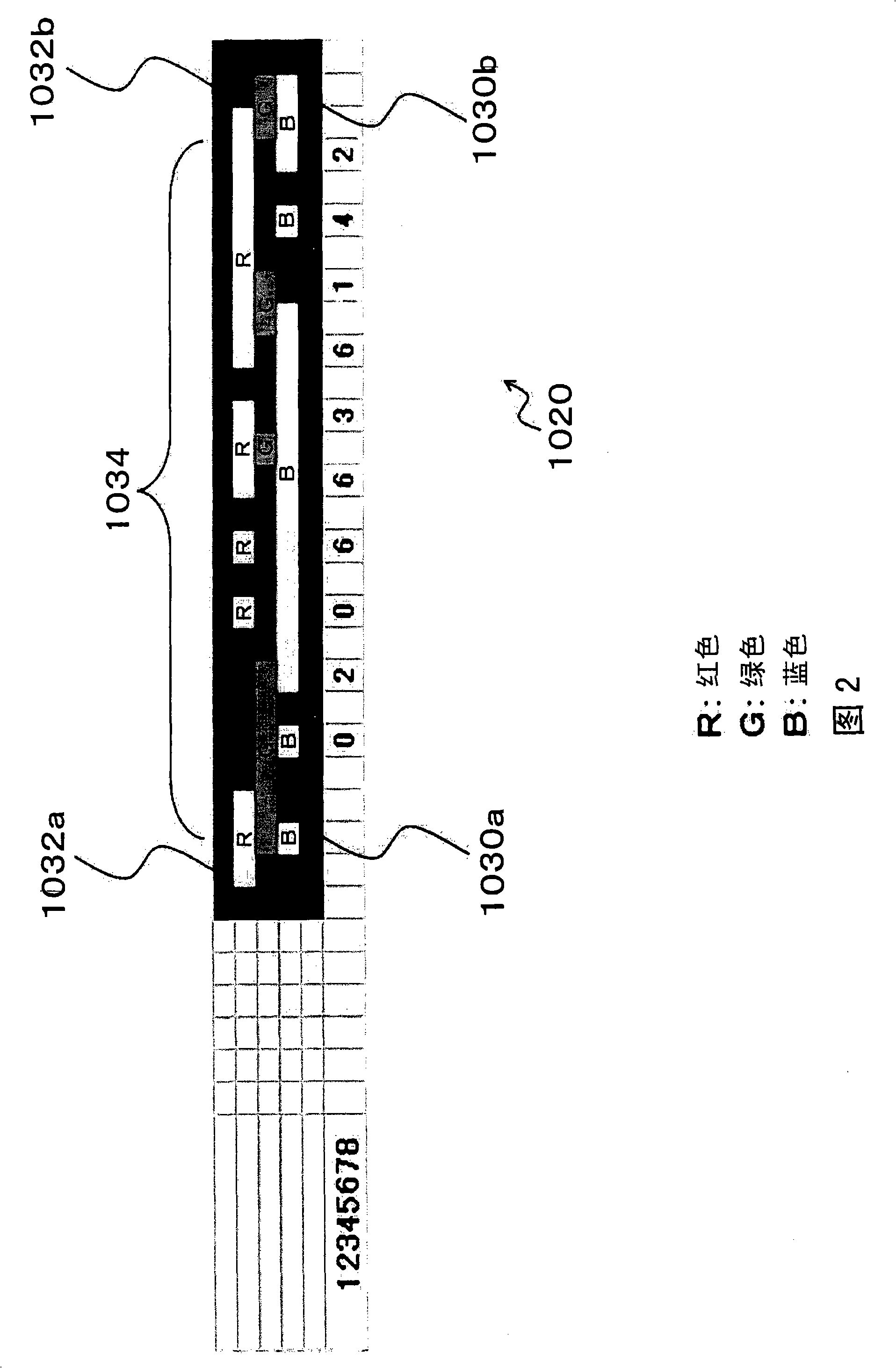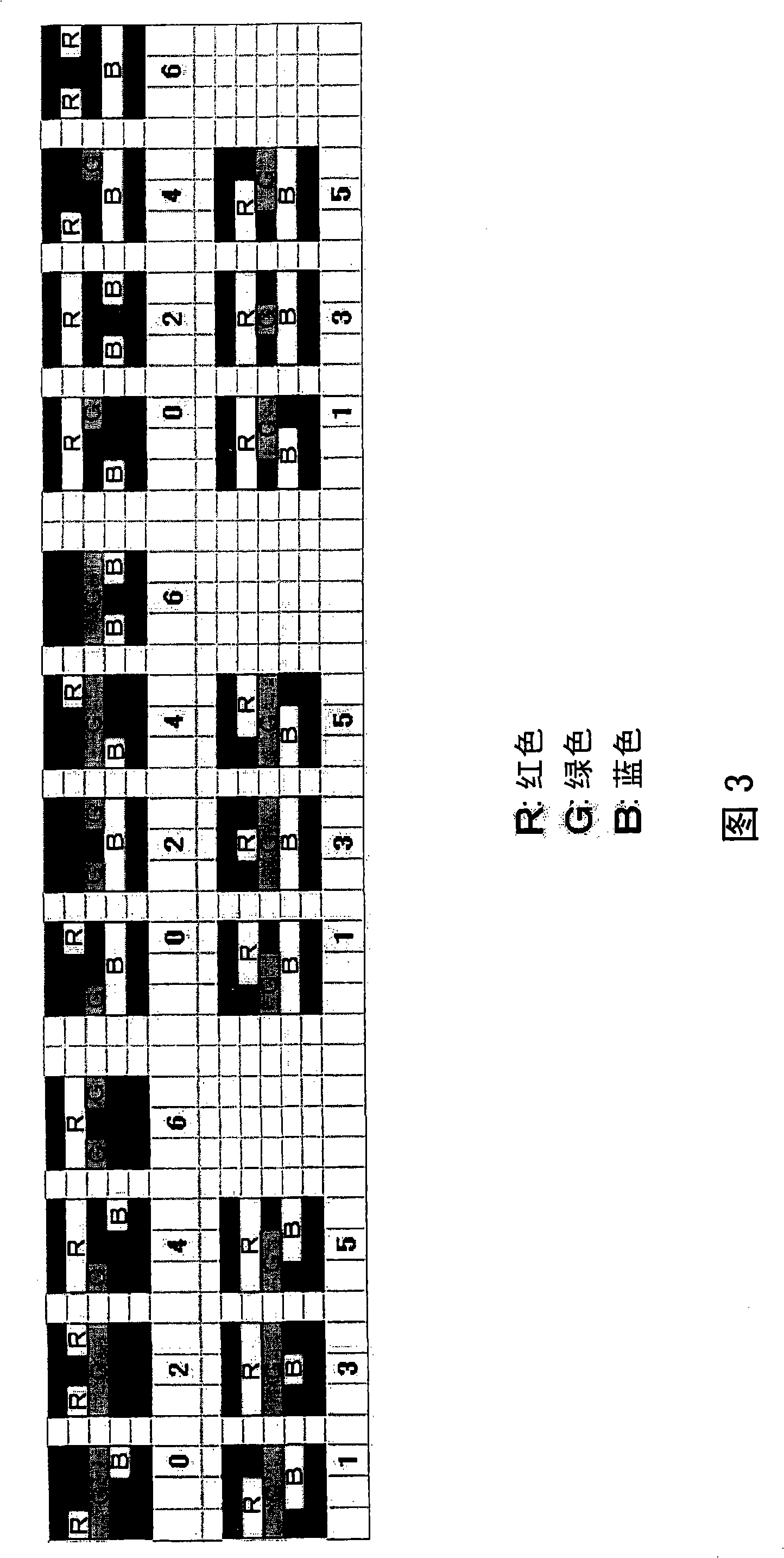Optical symbol, article to which the optical symbol is attached, method for attaching optical symbol to article, and optical recognition code recognizing method
An identification code, optical technology, applied to record carriers, instruments, electromagnetic radiation induction used by machines, etc., can solve problems such as decoding difficulties
- Summary
- Abstract
- Description
- Claims
- Application Information
AI Technical Summary
Problems solved by technology
Method used
Image
Examples
Embodiment approach 2
[0263] "Implementation Mode Two"
[0264] Next, a second preferred embodiment of the present invention will be described with reference to the drawings.
[0265] Section 2-11.5D Summary of Color Bit Code
[0266] First, the outline of the 1.5D color bit code developed by the inventors of the present application will be described. The 1.5D color bit code described here is an example using 3 colors as marking colors. For example, there are three colors of R (red), G (green), and B (blue) (C, M, and Y are also possible). Also, an example in which W (white) is shown as the still chromatic color constituting the still area is shown.
[0267] In the 1.5D color bit code, three lines of different colors are arranged in parallel and approximately equally spaced to form a column.
[0268] Each of the three columns is interrupted somewhere in the middle, and the interrupted part is a color corresponding to the still area (that is, W). The interrupted part of each column including bo...
Embodiment approach 3
[0367] "Implementation Mode Three"
[0368] Next, a third preferred embodiment of the present invention will be described with reference to the drawings.
[0369] Section 3-11.5D Summary of Color Bit Code
[0370] First, the outline of the 1.5D color bit code developed by the inventors of the present application will be described. The 1.5D color bit code described here is an example using 3 colors as marking colors. For example, there are three colors of R (red), G (red), and B (red) (C, M, and Y are also possible). Also, an example is shown in which the still color constituting the still area is K (black).
[0371] First, in the 1.5D color bit code, three lines of different colors are arranged in parallel and approximately equally spaced to form a column. Each of the three columns is interrupted somewhere in the middle, and the interrupted part is the color corresponding to the still area (that is, K (black)). The interrupted part of each column including both ends is re...
Embodiment 3-4-1
[0407] "Example 3-4-1"
[0408] And, when only one of the variable "0 and 1", "4 and 5" numbers is included in the 10-digit number,
[0409] Research (example) 22222122223232066232 and so on.
[0410] In this case, there is generally only one pattern that is easily changed (variable side). For the example mentioned,
[0411] 2222212222 easy to change
[0412] ↓
[0413] 2222202222
[0414] 3232066232 easy to change
[0415] ↓
[0416] 3232166232
[0417] Therefore, as the check number, it is only necessary to add a numerical value (for example, 0, 1, etc.) that obtains two types of values.
[0418] Since only two types of values are required, it is typically preferable to add parity (parity check) as the CD, for example. And, if the parity is calculated and its value is different from CD, it is judged that a change (misread) has occurred as described above.
[0419] However, in order to simplify the description, the difficulty of changing the test number itse...
PUM
 Login to View More
Login to View More Abstract
Description
Claims
Application Information
 Login to View More
Login to View More - R&D
- Intellectual Property
- Life Sciences
- Materials
- Tech Scout
- Unparalleled Data Quality
- Higher Quality Content
- 60% Fewer Hallucinations
Browse by: Latest US Patents, China's latest patents, Technical Efficacy Thesaurus, Application Domain, Technology Topic, Popular Technical Reports.
© 2025 PatSnap. All rights reserved.Legal|Privacy policy|Modern Slavery Act Transparency Statement|Sitemap|About US| Contact US: help@patsnap.com



